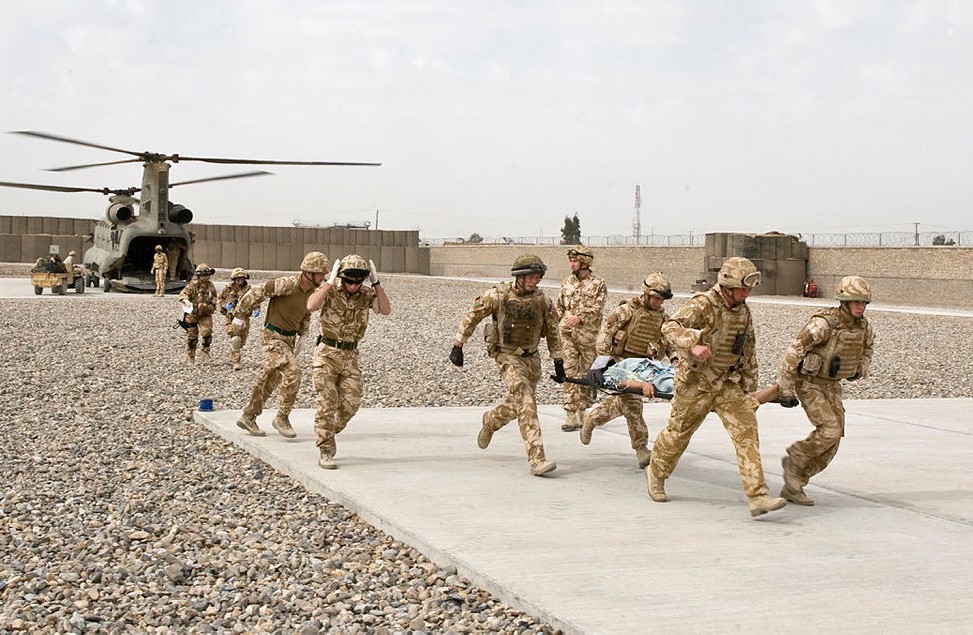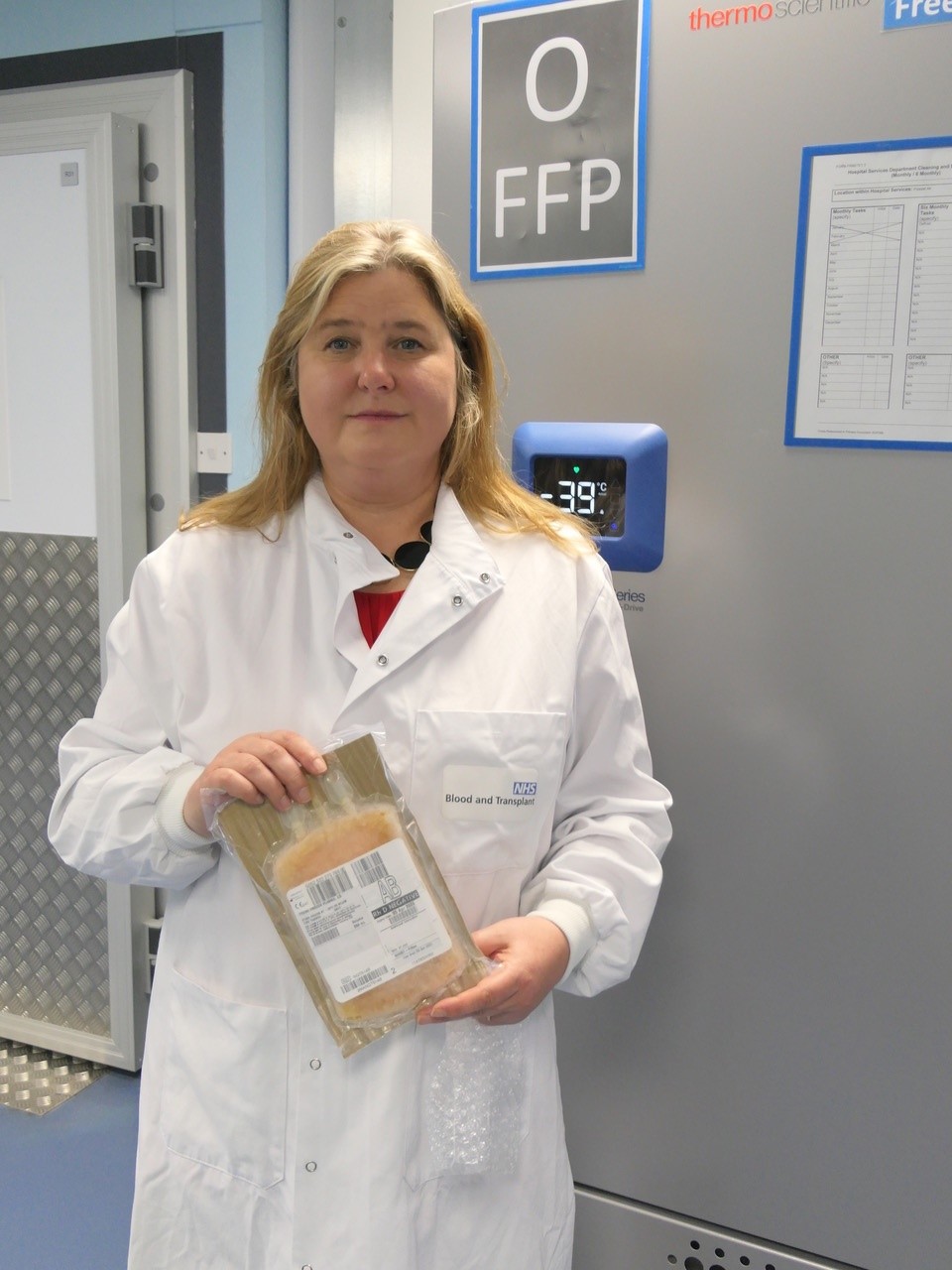Dried blood plasma project to help save soldiers’ lives launches
 An innovative project to rapidly deliver blood and plasma to injured soldiers is set to save lives in warzones.
An innovative project to rapidly deliver blood and plasma to injured soldiers is set to save lives in warzones.
The Ministry of Defence’s Blood Far Forward programme aims to deliver blood and plasma within 30 minutes of injury to soldiers in active warzones.
Dried plasma – which helps the blood to clot – will decrease the Army’s reliance on frozen plasma which has to be thawed, taking longer to administer, and could be used by NHS Air Ambulances in the future.
In the warzone most deaths occur within 60 minutes due to catastrophic injury, head injury or major haemorrhage. Early provision of plasma with red cells dramatically reduces mortality from major haemorrhage.
Frozen plasma currently takes an average of 20 minutes to thaw and transporting it poses major logistical challenges, including requiring a freezer and specialist equipment.
In contrast, dried plasma can be stored at room temperature and can be used by the medic when needed
The Army has now funded NHS Blood and Transplant to find a way to manufacture dried plasma for use on military operations.
How will this project help?
 At present, the Army sources dried plasma from NATO partners, which subject to significant worldwide demand. Sourcing it from the UK will ensure the Army has adequate supply that is not reliant on other countries.
At present, the Army sources dried plasma from NATO partners, which subject to significant worldwide demand. Sourcing it from the UK will ensure the Army has adequate supply that is not reliant on other countries.
The project will also enable single units of plasma to be produced without the need of complex facilities and placed in more convenient, plastic bags.
Technological resources for the project will be provided by Velico Medical, who have been contracted by NHSBT to work in collaboration with NHS scientists, including the process of gaining regulatory approval.
Richard Meehan, President and CEO of Velico, said:
"Spray-dried plasma is not only highly innovative, but it will change the course of transfusion medicine. We are excited and looking forward to work with our UK champions, in bringing our technology one step closer to changing lives in real-time."
The cost of the project is £4.9 million and will involve clinical trials in the UK. It is expected the resulting product will also benefit the NHS.